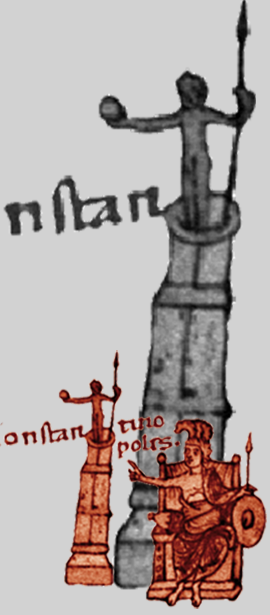Female Identities at a Liminal State
An Analysis of Childbed Prayers in Byzantine Prayerbooks
(Herta Firnberg-Position T 884-G25; from 01.12.2017)
The aim of the project is to unlock the potential of childbed prayers preserved in Byzantine prayerbooks (Euchologion, pl. Euchologia) with regard to questions of gender and purity by means of discourse analysis. These little used textual sources offer new perspectives on the construction of gender identity in Byzantium, as they focus on an aspect of the life of most Byzantine women usually ignored by other sources: the forty days from birth to churching, during which the woman was considered to be impure. These are normative texts, meaning that they do not depict the lives and experiences of “real” Byzantine women. But they may have had an impact nonetheless, as they offer identities which the recipients might adopt or project upon others. The project aims to study prayers related to the liminal state of childbed in order to explore the representation of women and the conceptualisation of gender and purity in the ecclesiastical discourse.
The research will be based both on published and hitherto unpublished texts, which will be studied in a theoretical framework provided by sociolinguistics and social studies, especially concerning gender, purity and ritual. The discourse analysis will include the study of the language register of the prayers in its literary and social context, as well as the analysis of their wording with regard to questions related to gender and purity. Intertextual relations with both other prayers on related topics (purity, women, household etc.) and selected texts beyond prayerbooks will be explored. The study of childbed prayers will be put in the context of research on the study of gender, family and religious life in Byzantium.
The work on this project stands in close collaboration with the Euchologia-Project.
Cooperation Partners
- Ass.- Prof. Dr. Eva Synek, University of Vienna, Department of Legal Philosophy, Law of Religion and Culture
- Univ.-Ass. Dr. Daniel Galadza, University of Vienna, Department of Historical Theology

